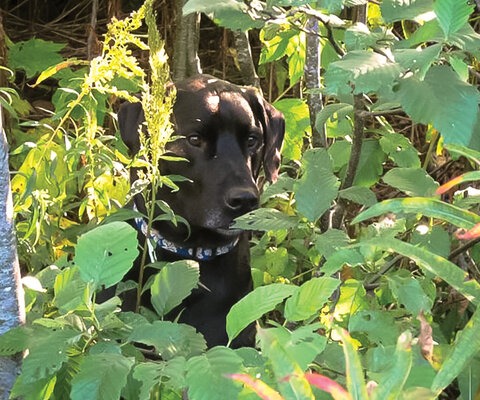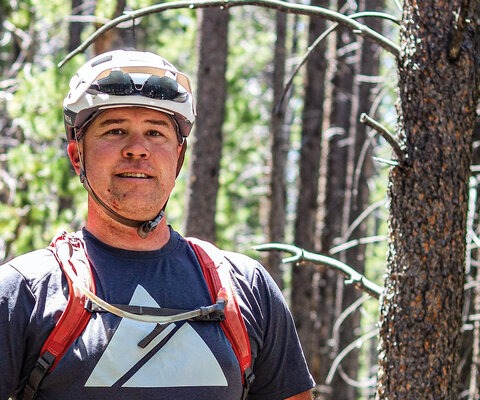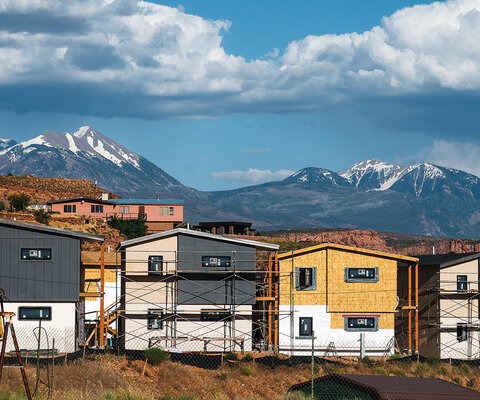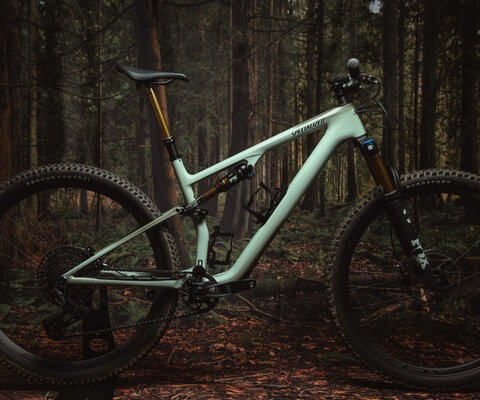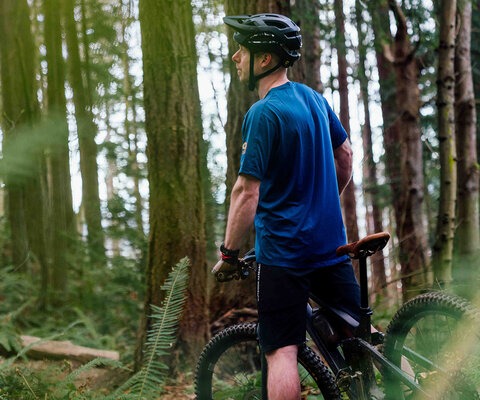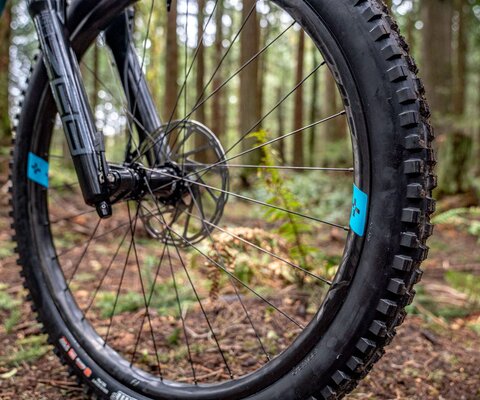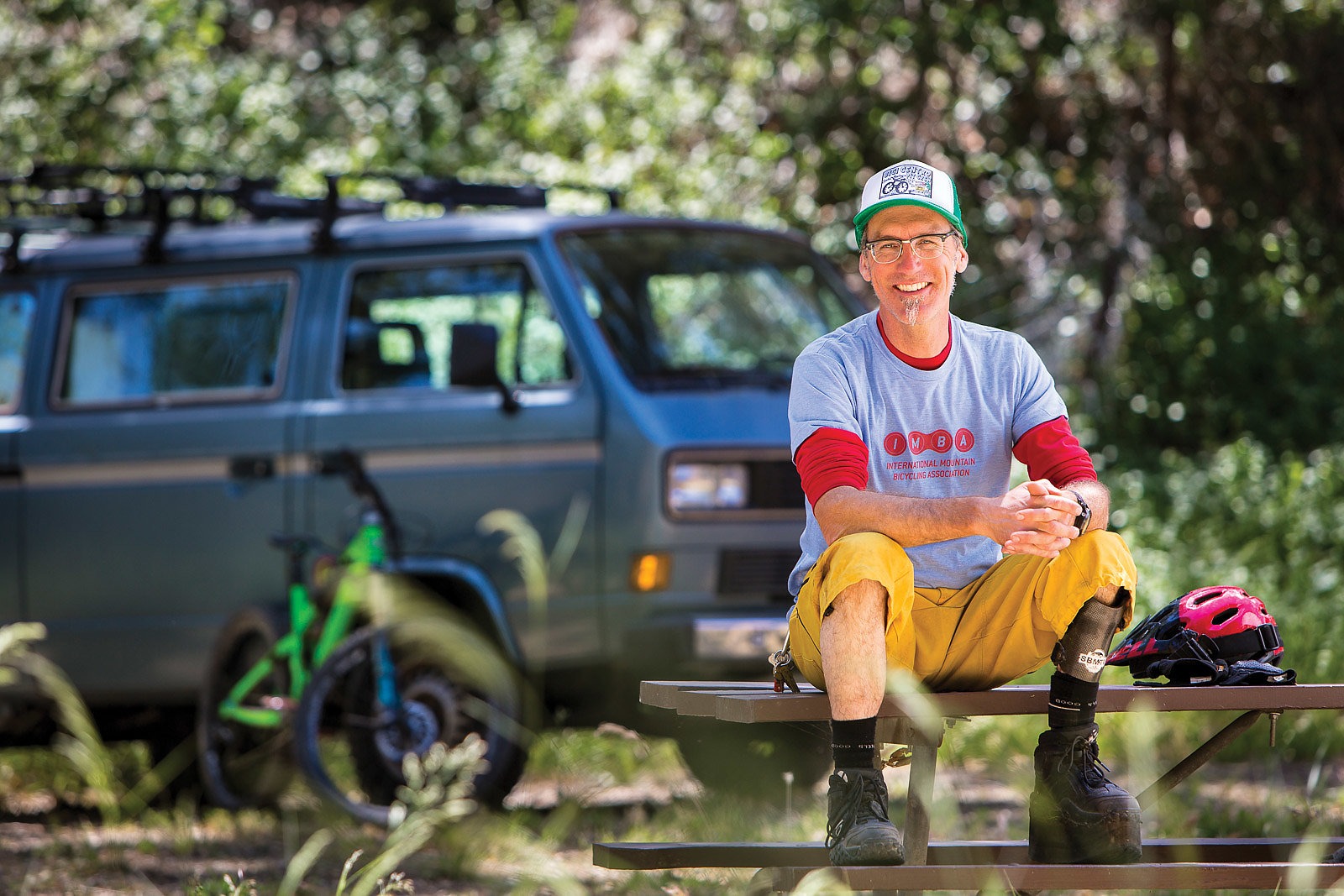
Fighting for the Underdog - Spreading the Mountain Bike Gospel with Chris Orr
Chris Orr has the type of riding style that deserves a soundtrack: deliberate, fast and backed up with heavy chords, as you’d expect for someone who grew up riding BMX during the heyday of punk in the early 1980s.
Music aside, Orr is more Johnny Appleseed than Sid Vicious. Between his lifelong passion for two wheels and his current job with IMBA’s Trail Solutions Team, Orr’s journey has taken him from his home state of Nebraska to his new home of Santa Barbara, CA and dozens of places in between, imparting trail wisdom and advocacy along the way.
It hasn’t been an easy path to walk. Born without a fibula and a left leg two inches shorter than his right, Orr has fought through multiple surgeries, learned to walk more than once, and built his own orthotics. But one thing has been constant throughout—Orr’s unfailing love for all things bicycling.
“My earliest memory on a bike was when I was maybe 2 or 3, riding at the park across the street where I wasn’t supposed to be because there was a bridge over a creek you could ride almost like a ramp,” Orr says. “Bicycles give you the freedom and teach you about adventure as a kid. It’s a kickass thing to still be able to get on your bike as an adult and still enjoy that.”
Orr took that spirit of adventure to Austin, TX, where he first got hooked on technical riding, both uphill and downhill, and it followed when he moved to Santa Barbara, CA in 1993. It was the early golden era of mountain biking in Santa Barbara, and just three years after the move he bought his first downhill rig to handle the area’s steep terrain. Soon he became involved with the Santa Barbara Mountain Bike Trail Volunteers (SBMTV), where his passion and dedication led to his appointment as president. During his time with SBMTV, Orr and other local riders implemented a bike bell program in 2001, and in 2002 he was picked to join Wade Simmons to address downhill/freeride issues at IMBA’s World Summit.
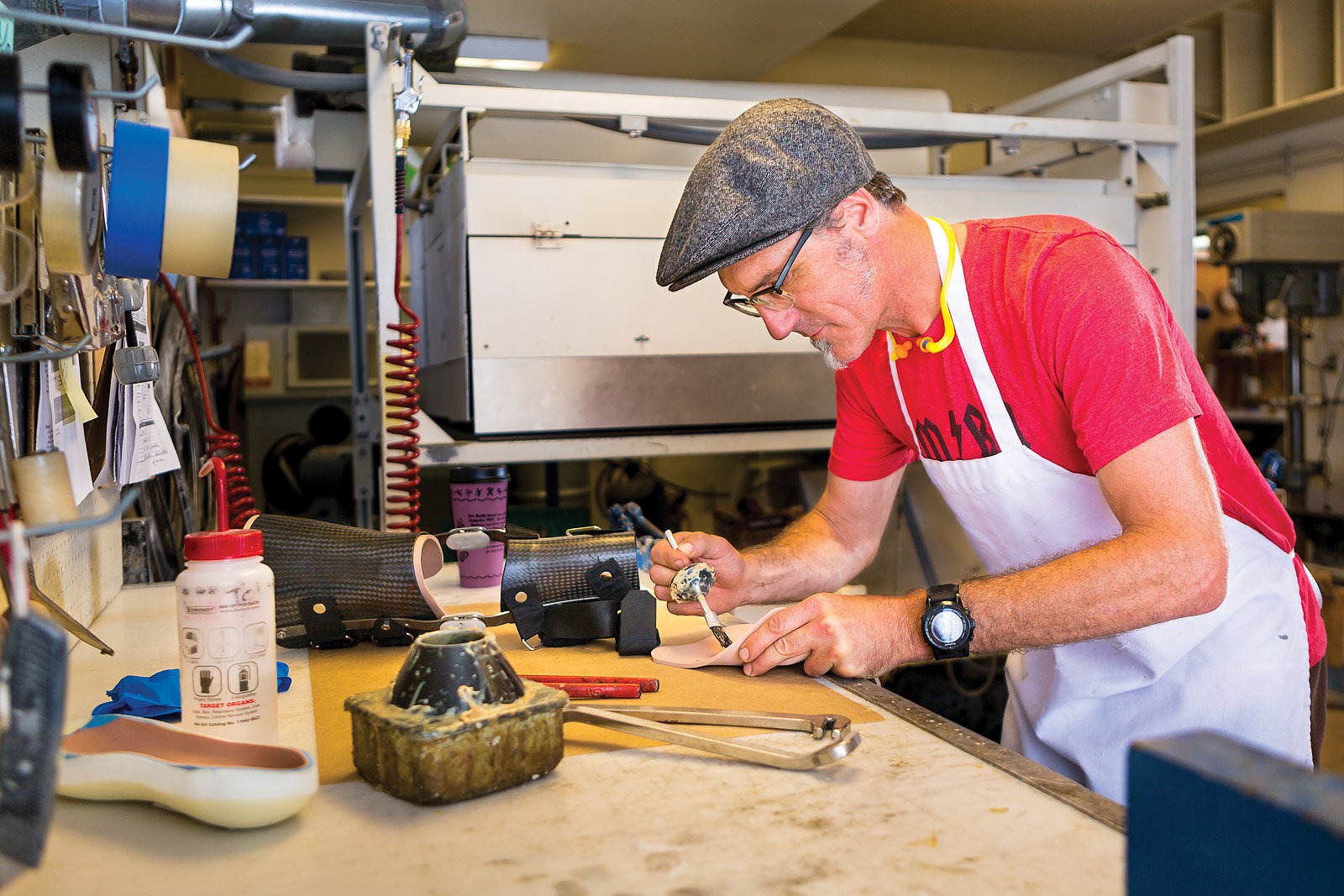
While Orr was living the dream in Santa Barbara—both on the bike and in his career—he was also struggling with the physical impairment that had plagued him throughout his life.
During his youth, Orr was sidelined by numerous surgeries, and ended up having to relearn basic walking skills after each. The disparity between his legs became more exaggerated as he aged, so in 1976 he became the second patient in the United States to undergo painful surgery to lengthen his leg. (Interesting side note: Dr. Ilizarov, the Russian doctor who pioneered limb-lengthening in the 1950s, used bicycle rims and parts to stabilize and stretch the limbs after breaking the bones with a hammer.) But after each surgery, his passion was there to keep him going.
“The bike was the freedom and the sport and the passion, all at the same time,” he says. “It gave me the ability to move—I had to learn to walk maybe three times after the operations, but I didn’t really have to relearn how to ride the bike. It’s easier to ride than it is to walk.”
The years went by and Orr suffered through more painful surgeries, which included fusing his tibia to help support his ankle. Today, Orr’s left leg is still shorter than his right and he’s missing a few toes, but his extensive experience working with orthotics helped him to create adaptive footwear with a 2.5-inch lift, prompting the affectionate nickname “Bigfoot.” He rides with ankle and knee braces in addition to his custom shoe.
“All the time,” he says, referring to whether his leg still causes him pain. “I can’t really do group sports because I can’t run—unless I’m scared or something’s chasing me. Then I can run.”
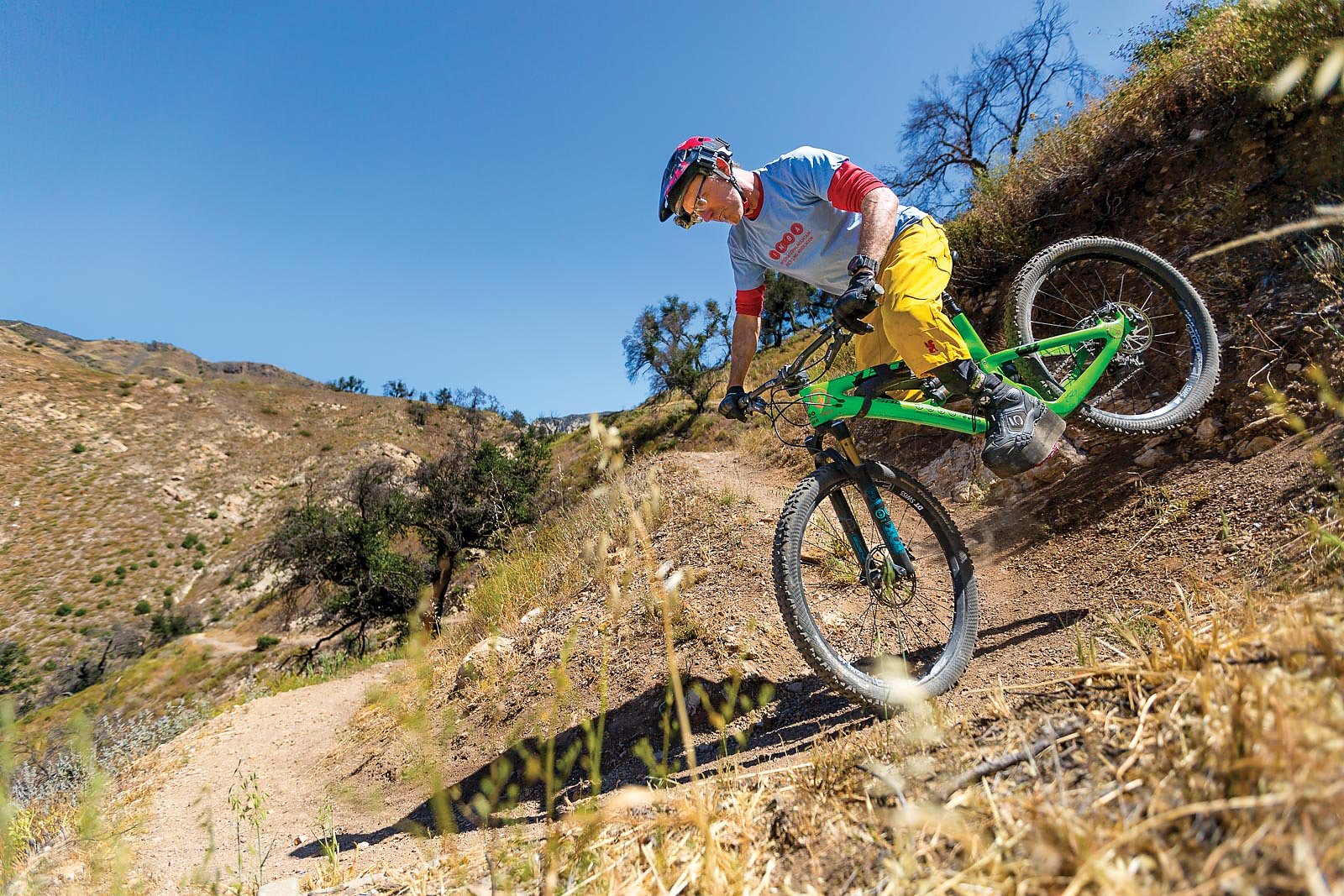
Even not knowing his past challenges, watching Orr nose-wheelie around near-vertical switchbacks showcases the technique that is the foundation of his punchy style. Currently, Orr is spreading the mountain bike gospel at a national level. Having been associated with IMBA in different capacities since 2003, in 2014 he was hired as the community trails liaison for their Trails Solution Team.
Now he spends most of his time designing and developing dirt parks and trail networks throughout the US, including projects in Arkansas, California, Tennessee, Utah, Arizona and Ohio. His focus is getting the everyday riders involved with trail-access issues, an idea to which Orr has been committed since his days as a downhill racer.
“The most important aspect is better informing all cyclists of what’s going on to keep bike access and trails open,” he says. “Mountain bikers expect trails to be there for them, that it’s a right. In reality, it’s more of a hard-won privilege.”
For Orr, that privilege can take many forms. He’s as excited about community pump tracks as he is about pushing for more singletrack or the swelling ranks of bikepackers—sometimes even more excited.
“At almost every pump track I’ve been to over the past year and a half there’s been a little girl riding it on a pink bike, midweek,” he says. “That’s the best thing ever. That’s the adventure you’re supposed to you have when you’re a kid.”
It’s a gospel Orr has spent his life preaching. Despite mountain biking’s growing popularity, it still faces obstacles across the country and requires constant advocacy. But that’s what Orr does—take on the toughest battles and fight like hell.
“Everywhere the bike is still an underdog,” Orr says. “And I kind of like fighting for the underdog.”
